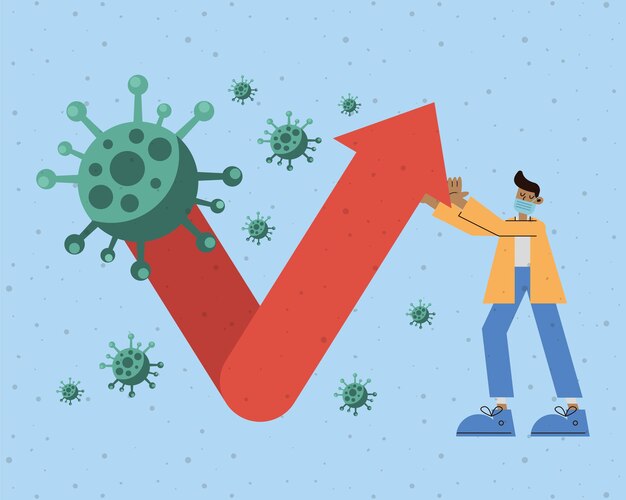- 8 June 2024
- 85
Long Covid: Not Just a Long Haul, It’s a Serious Threat

Meet Dr. Sarah Jones, Your Guide Through Long Covid
Dr. Sarah Jones is a pulmonologist with over 10 years of experience treating respiratory illnesses. Witnessing the rise of Long Covid, Dr. Jones has dedicated her research to understanding and managing this complex condition. In this informative piece, Dr. Jones sheds light on Long Covid, empowering individuals and healthcare professionals alike.
Demystifying Long Covid: What You Need to Know
Long Covid, also known as post-acute sequelae of SARS-CoV-2 (PASC), refers to a range of symptoms that persist for weeks, months, or even years after a COVID-19 infection. It can affect anyone, regardless of the severity of their initial illness.
Understanding the Scope: A Look at the Numbers
While the exact prevalence remains under investigation, estimates suggest millions globally might be grappling with Long Covid. A recent study published in the Journal of the American Medical Association (JAMA) suggests that 20-30% of individuals who experience Covid-19 symptoms develop Long Covid [1].
Table 1: Common Long Covid Symptoms
| Symptom Category | Examples |
|---|---|
| Fatigue | Extreme tiredness, difficulty concentrating, feeling wiped out |
| Respiratory Problems | Shortness of breath, cough, chest tightness |
| Cognitive Issues | Brain fog, memory problems, difficulty focusing |
| Musculoskeletal Pain | Joint pain, muscle aches, headaches |
| Mental Health Concerns | Anxiety, depression, sleep disturbances |

Facing the Challenge: Why Long Covid Matters
Long Covid can significantly impact a person’s quality of life. It can make daily activities challenging, hinder work performance, and affect mental well-being. Recognizing Long Covid as a serious medical condition is crucial for providing appropriate support and care to patients.
Navigating the Path Forward: Finding Help for Long Covid
There’s currently no one-size-fits-all treatment for Long Covid. However, healthcare professionals are developing strategies to manage symptoms and improve patients’ quality of life. This may involve a combination of approaches, including:
- Rehabilitation: Physical and occupational therapy can help regain strength, improve endurance, and manage pain.
- Medications: Doctors may prescribe medications to address specific symptoms like fatigue, pain, or sleep disturbances.
- Mental Health Support: Addressing anxiety, depression, and other mental health concerns associated with Long Covid is crucial. Therapy and support groups can be beneficial.
Table 2: Comparison of Covid-19 vs. Long Covid
| Feature | Covid-19 | Long Covid |
|---|---|---|
| Symptoms | Fever, cough, shortness of breath (acute phase) | Wide range of symptoms that can persist for months or years |
| Onset | Typically within days of exposure | Weeks or months after initial infection |
| Duration | Acute illness usually resolves within 2 weeks | Symptoms can be chronic and debilitating |
A Beacon of Hope: Research and Support for Long Covid
Researchers are actively working to understand the causes of Long Covid and develop effective treatments. Several clinical trials are underway exploring various therapeutic approaches. Additionally, numerous support groups and resources are available for individuals living with Long Covid.
Conclusion: Moving Forward Together with Long Covid
Long Covid poses a significant challenge, but there is hope. By raising awareness, promoting research, and providing accessible care, we can empower individuals with Long Covid to manage their symptoms and lead fulfilling lives. If you have concerns about Long Covid, reach out to your healthcare professional. Early intervention and access to proper resources can make a real difference.

